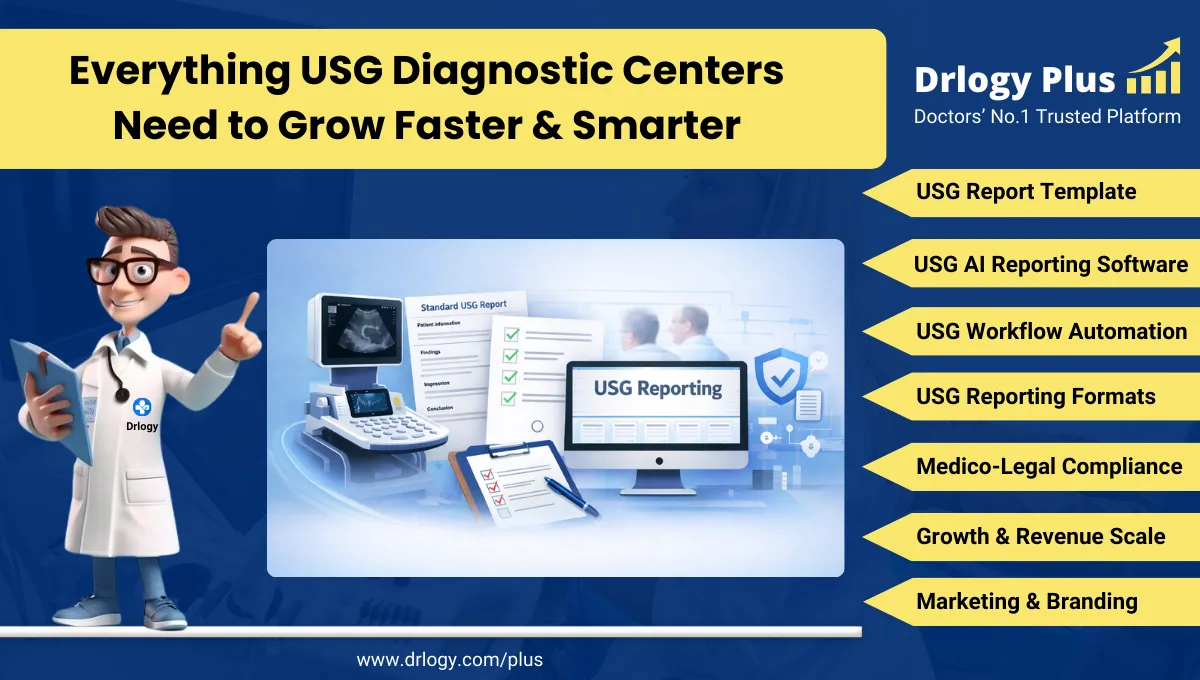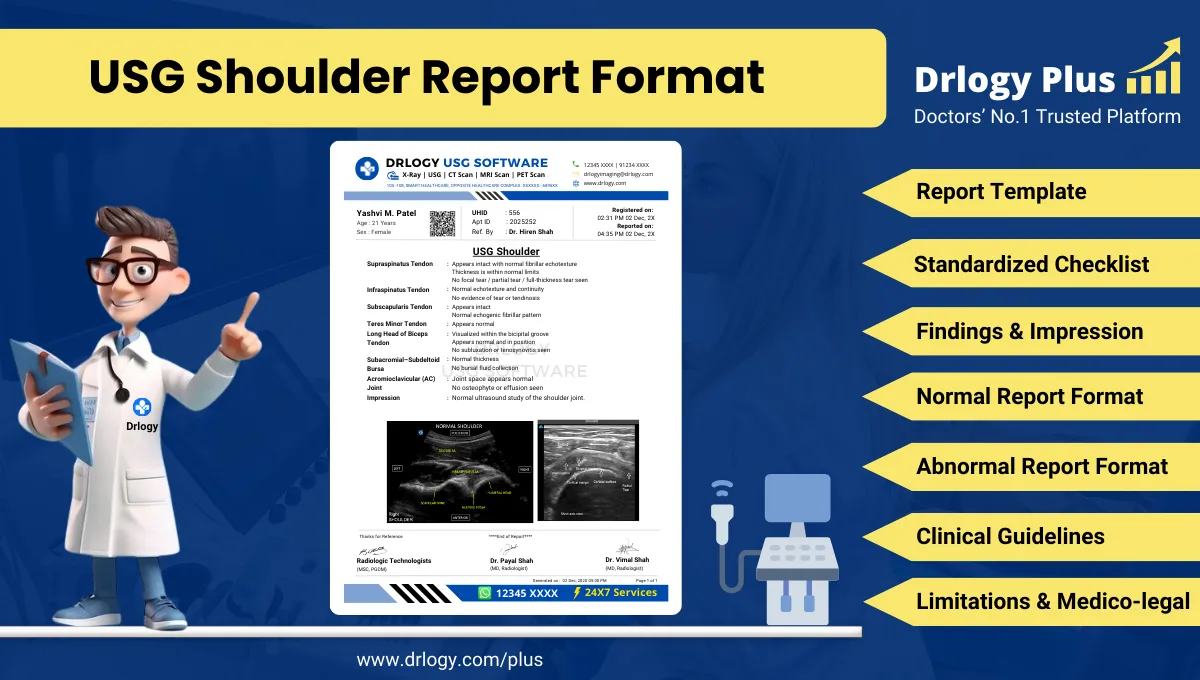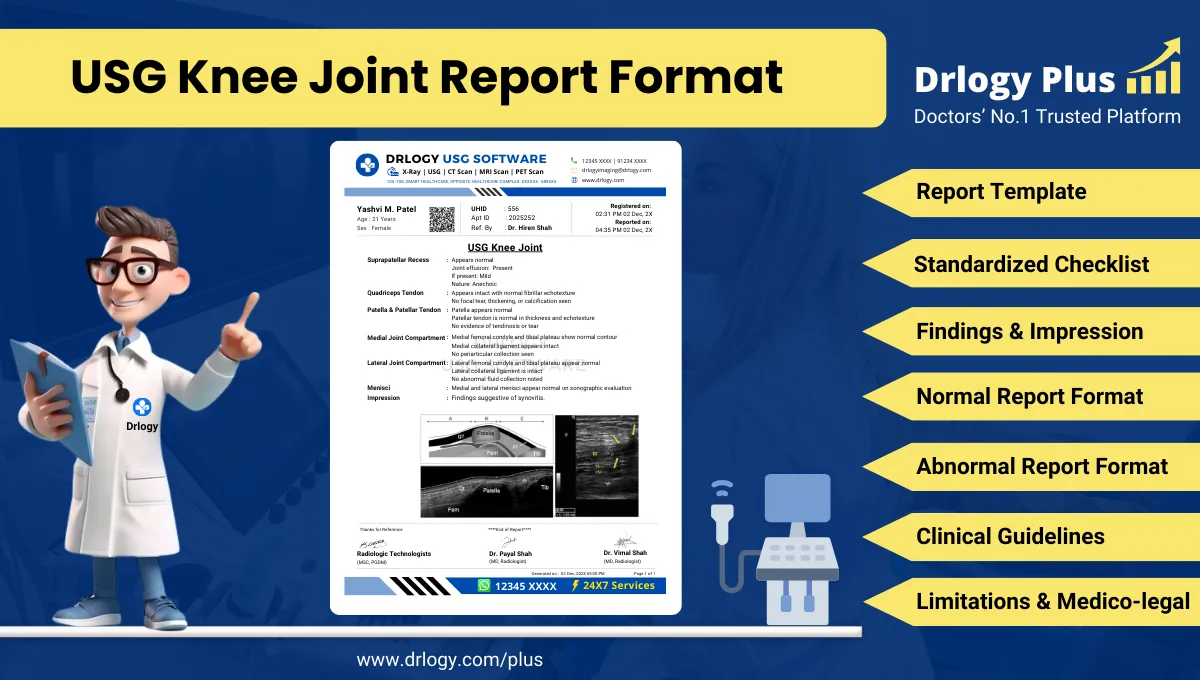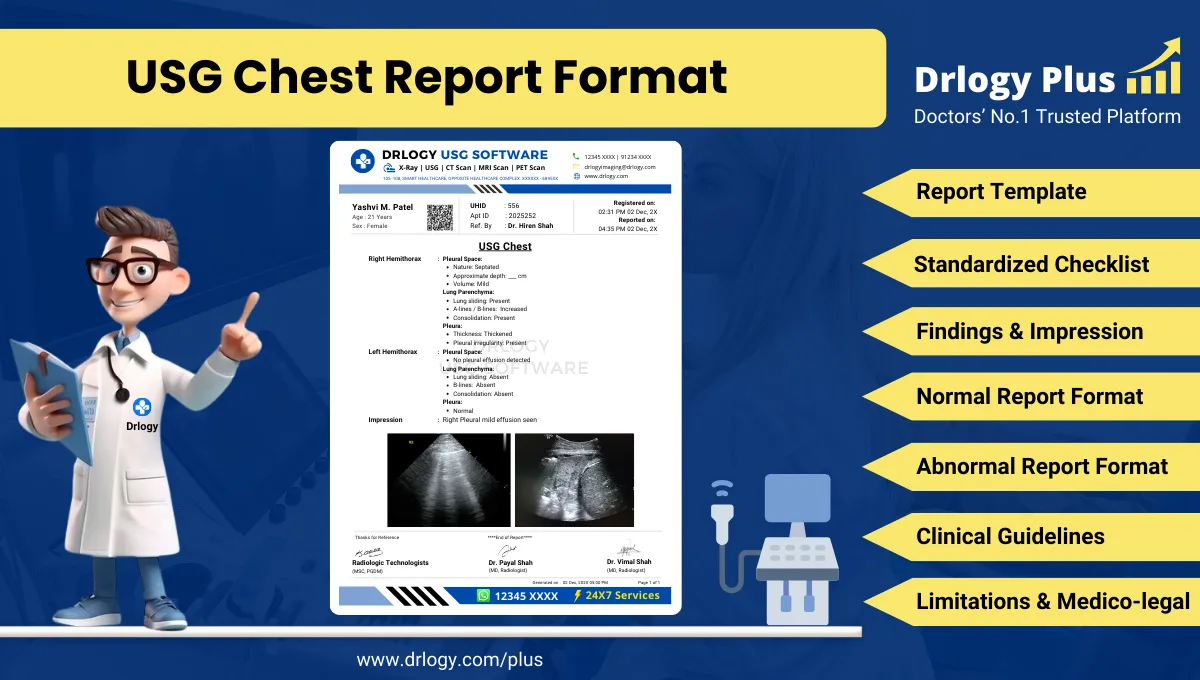

Drlogy
Healthcare organization
Why Patient Data Security Feature Must For MRI Software
Patient Data Security Feature in MRI Software ensures the confidentiality and integrity of sensitive medical information through encryption, access controls, and compliance measures.
Do You Know?
- MRI software with robust patient data security features reduces the risk of data breaches by up to 70%, ensuring compliance with regulations such as HIPAA and GDPR.
- Approximately 95% of patients prioritize data security when choosing healthcare providers, making robust patient data security features in MRI software essential for building trust and maintaining patient confidentiality.
In this Drlogy MRI Software Features Guide, we'll examine how Patient Data Security safeguards sensitive medical information with encryption, access controls, and compliance measures.
What is Patient Data Security Feature in MRI Software
- Patient data security features in MRI software safeguard sensitive medical information, ensuring that patient confidentiality is upheld to maintain trust between healthcare providers and patients.
- These features ensure compliance with regulatory standards such as HIPAA, mitigating the risk of legal repercussions and financial penalties associated with data breaches or privacy violations.
- By implementing encryption, access controls, and regular security updates, patient data security features shield MRI software from unauthorized access, cyberattacks, and data breaches, preserving the integrity and confidentiality of patient records.
10 Reasons Why Patient Data Security Feature Must For MRI Software
Here are 10 Reasons Why Patient Data Security Feature Must For MRI Software.
1. Compliance with Regulations
- Regularly audit and update security protocols to ensure compliance with HIPAA, GDPR, and other regulatory standards.
- Provide training to staff members on regulatory requirements and best practices for safeguarding patient data.
- Conduct regular risk assessments toentify potential vulnerabilities and address them proactively.
- Implement data breach response plans to mitigate the impact of security incidents and comply with regulatory reporting requirements.
Drlogy MRI Software ensures compliance with healthcare privacy regulations by maintaining robust security measures and facilitating ongoing staff training and compliance efforts.
2. Confidentiality Protection
- Utilize-based access controls to restrict data access to authorized personnel only.
- Encrypt sensitive data both at rest and in transit to prevent unauthorized access or interception.
- Implement secure data deletion processes to permanently remove patient data when it is no longer needed.
- Regularly review and update security policies to address emerging threats and vulnerabilities.
Drlogy MRI Software protects patient confidentiality through encryption, access controls, and secure data deletion mechanisms, ensuring that sensitive information remains confidential and secure.
3. Data Encryption
- Utilize industry-standard encryption algorithms such as AES to encrypt patient data stored on servers and transmitted between devices.
- Implement encryption key management processes to securely generate, store, and rotate encryption keys.
- Regularly assess encryption protocols to ensure they meet the latest industry standards and best practices.
- Provide encryption options for data backups and archives to maintain data security at all times.
Drlogy MRI Software employs robust encryption techniques to protect patient data from unauthorized access or interception, ensuring data confidentiality and integrity.
4. Access Controls
- Implement user authentication mechanisms such as biometric authentication or two-factor authentication to verify userentities.
- Utilize access control lists (ACLs) to specify which users or groups have permission to access specific types of patient data.
- Regularly review and update user access permissions based on changes ins or responsibilities.
- Monitor user activity logs to detect unauthorized access attempts or suspicious behavior.
Drlogy MRI Software enhances data security through granular access controls and user authentication mechanisms, ensuring that only authorized users can access patient data.
5. Secure Authentication
- Require strong passwords with minimum complexity requirements and regular password changes.
- Implement multi-factor authentication (MFA) to add an extra layer of security beyond passwords.
- Utilize single sign-on (SSO) solutions to streamline authentication processes while maintaining security.
- Provide options for biometric authentication such as fingerprint or facial recognition for enhanced security.
Drlogy MRI Software enhances security through secure authentication methods such as strong passwords, multi-factor authentication, and biometric authentication, reducing the risk of unauthorized access to patient data.
6. Data Backups
- Regularly schedule automated backups of patient data to ensure data integrity and availability.
- Store backups in secure off-site locations or cloud environments to protect against physical or environmental threats.
- Test backup and recovery processes regularly to verify data integrity and readiness for potential restoration scenarios.
- Implement encryption for backup data to maintain confidentiality and prevent unauthorized access.
Drlogy MRI Software ensures data resilience and availability through regular automated backups stored in secure locations, protecting patient data from loss or corruption.
7. Secure Data Storage
- Utilize secure data storage solutions with built-in encryption and access controls to protect patient data from unauthorized access or tampering.
- Implement data segmentation and isolation techniques to compartmentalize sensitive data and restrict access to authorized users only.
- Regularly monitor and audit data storage systems for security vulnerabilities or unauthorized access attempts.
- Implement data loss prevention (DLP) measures to prevent accidental or intentional data leaks.
Drlogy MRI Software safeguards patient data through secure storage solutions, encryption, and access controls, ensuring data confidentiality and integrity.
8. Continuous Security Updates
- Regularly update and patch MRI software components, operating systems, and third-party dependencies to address security vulnerabilities and mitigate potential risks.
- Establish procedures for monitoring security advisories and patches released by software vendors and security researchers, ensuring timely implementation of critical updates.
- Conduct periodic vulnerability scans and penetration tests toentify and remediate security weaknesses in the MRI software infrastructure.
- Provide mechanisms for users to report security vulnerabilities or concerns to the software vendor for prompt investigation and resolution.
Drlogy MRI Software prioritizes continuous security updates and proactive vulnerability management to protect against emerging threats and ensure the ongoing security of patient data and systems.
9. Regular Security Audits
- Conduct regular security audits and vulnerability assessments toentify and address potential weaknesses in the system.
- Engage third-party security experts to perform independent audits and penetration tests to validate the effectiveness of security controls.
- Develop and maintain a comprehensive security policy that outlines security best practices and procedures for staff members to follow.
- Implement automated security monitoring tools to continuously monitor system activity and detect anomalies or potential security breaches.
Drlogy MRI Software ensures ongoing security through regular audits, vulnerability assessments, and adherence to security best practices, minimizing the risk of security incidents and data breaches.
10. Employee Training and Awareness
- Provide comprehensive training programs and resources to educate staff members about security policies, procedures, and best practices.
- Conduct regular security awareness training sessions to educate staff members about the importance of data security and their in protecting patient information.
- Implement phishing simulation exercises to help staff members recognize and respond to phishing attempts and other social engineering attacks.
- Encourage staff members to report security incidents or suspicious activities promptly and provide clear guidelines for incident reporting procedures.
Drlogy MRI Software promotes a culture of security awareness through ongoing training and education programs, empowering staff members to recognize and mitigate security risks effectively.
10 Patient Data Security Feature Benefits For MRI Software
Here are 10 Patient Data Security Feature Benefits For MRI Software.
- HIPAA Compliance: Patient data security features ensure compliance with the Health Insurance Portability and Accountability Act (HIPAA), safeguarding sensitive medical information and protecting patient privacy.
- Encryption: Utilizing encryption techniques for data storage and transmission secures patient data against unauthorized access, ensuring confidentiality and integrity throughout the MRI software ecosystem.
- Access Controls:-based access controls restrict system access to authorized personnel only, preventing unauthorized users from viewing or modifying patient data, thereby reducing the risk of data breaches.
- Audit Trails: Comprehensive audit trails track user activities within the MRI software, providing accountability and transparency regarding who accessed patient data and what actions were performed, aiding in compliance audits and investigations.
- Data Masking: Masking or anonymizing personallyentifiable information (PII) within the software interface further protects patient privacy, reducing the risk ofentity theft or unauthorized disclosure.
- Secure Transmission Protocols: Implementing secure communication protocols, such as HTTPS or VPNs, ensures that patient data exchanged between devices or networks remains encrypted during transit, safeguarding against interception or eavesdropping.
- Regular Security Updates: Timely implementation of software updates and patches addresses known vulnerabilities, reducing the risk of exploitation by malicious actors seeking to compromise patient data security.
- Data Backups and Disaster Recovery: Automated data backups and robust disaster recovery mechanisms protect against data loss due to system failures, natural disasters, or cyberattacks, ensuring patient information remains accessible and intact.
- Employee Training and Awareness: Ongoing training programs educate staff about data security best practices and the importance of safeguarding patient information, reducing the likelihood of human error or negligence leading to breaches.
- Third-Party Security Assessments: Conducting regular security assessments and audits by independent third parties validates the effectiveness of data security measures,entifying potential vulnerabilities and areas for improvement to enhance overall patient data protection.
Drlogy MRI Software Buying Guide
| 1. Patient Reporting Management | 8. Mobile App |
| 2. Report Format | 9. Patient Portal |
| 3. Patient Data Security | 10. Customer Service |
| 4. Patient Education | 11. Online Scheduling |
| 5. Consent Form | 12. Report Tracking |
| 6. Ref Doctor Sharing | 13. Investigation |
| 7. Billing | 14. Budget and ROI |
Summary
Overall, Patient Data Security feature in MRI Software ensures the confidentiality, integrity, and compliance of sensitive medical information, safeguarding patient trust and regulatory adherence.
Check Drlogy MRI Software Features Buying Guide to make informed choices for enhancing operational efficiency and patient care in your radiology center.




